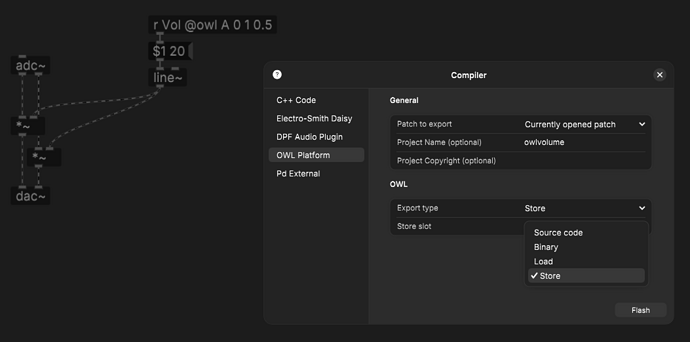Ah right, sorry about that pointless suggestion  If you just want to link a larger patch executable without being able to run it on hardware, you can edit
If you just want to link a larger patch executable without being able to run it on hardware, you can edit Source/flash.ld and change the line PATCHRAM (rwx) : ORIGIN = 0x2000c000, LENGTH = 144K /* total RAM is 192kb */ to specify LENGTH = 1M or something like that.
Also, we have an option to build patches up to 512kb in size, but they would run only on OWL3 (or Xibeca) boards. This is done by passing PLATFORM=OWL3 when running make commands. It’s not enough to solve this issue (and compiler output is obviously not correct here either way).
Regressions due to toolchain change are certainly possible, I guess you could test the patch generated by OWL’s HVCC with 10.2 GCC to see if it’s also has this issue. Don’t forget to run make realclean; make libs when changing toolchain.




